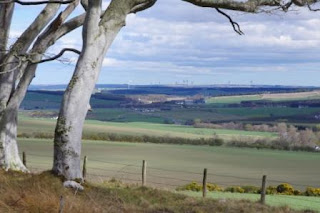“Thinking is hard - yet barely a waking moment passes when we're not labouring away at it. A few of us may be natural geniuses, able to work through the toughest tangles in an instant; others, blessed with reserves of willpower, stay the course in the dogged pursuit of truth. Then there's the rest of us. Not prodigies and a little bit lazy, but still aspiring to understand the world and our place in it. What can we do?” (Amazon blurb regarding Daniel Dennett’s latest book “Intuition Pumps and Other Tools for Thinking”)
Daniel Dennett
I have several feet of bookshelves dealing with the mind and thinking . I could make one-pagers of them. But that is yesterday’s party trick. When I grew up I put away childish things. I used to objectively herd other people’s thinking animals. These days I try to get to holistic grips with the thinking/ feeling animal that is/ is not the non-egoic me.
Today’s news - an 80 year old Japanese gentleman has climbed Everest. My goals are more humble – I seek to climb only the Himalayas of the Soul (HOTS). This can be done from a cushion or an armchair – with occasional transplants to an office chair facing an online laptop.
My map to the HOTS has plenty detail about the foothills but not so much about the heights. In retrospect there has been a sequence:
- Cultural roots – 20th century, rural Scottish Presbyterian
- Archaeology, Psychology and Zoology
- Teaching general science and biology
- Sociology, anthropology and western philosophy (Development)
- Eastern philosophy – Taoism and Buddhism - Zen and Vipassana.
- Mindfulness meditation.
- Neuroscience and Evolutionary Psychology.
Group (1) was serendipitous in terms of family, community and sub culture. Nature and nurture together set me up as a serious minded, green, scientific, intellectual.
Groups (2) to (4) saw me scratching around the western scientific foothills ; but this did not deliver what I intuitively sought.
Group (5) marked my initial academic review of the Eastern ways of thought. It became clear that there was more to understanding than just knowing.
Group (6) marked the beginnings of a Buddhist practice and the experience of being beyond space, time and ego. Interest in Groups (1) to (5) waned. ‘Being peace’ became the aspiration. And there was interest in extracting the essence of Buddhist practice and of eliminating the exotic ritual and vocabulary. I appreciated the MBSR line of thinking.
And now there is Group (7). The evolution of the modular mind/brain. Structure and function. Past, present and possible future. Consciousness of consciousness.
Neural plasticity. Think different, be different.
Peace is the Way. The HOTS are cool.

No comments:
Post a Comment